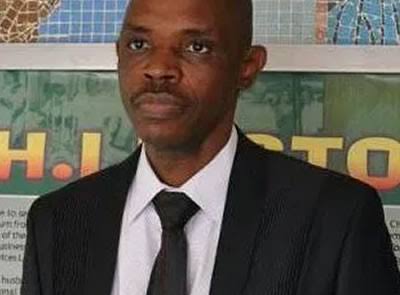By Lasisi Olagunju
If the elites of the North will not ‘give’ President Bola Tinubu a second term, who told them that the South will give power back to them in 2027? Leper losing his needle presents peculiar problems. It is not two years since power changed hands in Nigeria but the jungle is already rumbling. Mordant cries about French bases, about federal appointments lacking symmetry, about dirty gutters and stinking swamps are all familiar tricks of snatching the forest from the current champion. The roars of ‘fairness’ are not about ‘justice’ and the people and the challenges they face. They are not about terror and error bombs; not about cheap deaths, hunger and joblessness. The goal is power with all the privileges it gives the privileged.
But we are what Cecil Helman’s ‘Parables’ says we are: fragments under the feet of fate. Nobody, and nobody, neither North nor South, owns this land. The one who created power possesses it – and that is the Creator. But, some think Nigeria and all of us can be knitted into anything that suits their fingers –all because of greed of unearned grandeur. They should look keenly at coconut: it rests on its side despite having a bottom. Why? Those who think power is their own exclusive possession and think life cannot be lived well outside power should listen to the following parables and the story that follow them:
Long, long ago, at the beginning of time in Ile Ife, there was a very poor man who had only one he-goat as his only means of living. He-goat is called itú in Yoruba. This poor man got his daily meal through the she-goats his itú mated with. One day, he discovered to his sorrow that the goat was missing. It was stolen.
The man searched and searched for his goat without success. The more he searched, the sadder he became because he suspected that his pricey goat may have become food in some thieving tummies. He kept searching. Then, one day, he met an old man who asked what his problem was. He told him.
The old man gave the poor man a warning that he must stop the search. Itú (he – goat) rẹ̀ sọnù, ṣùgbọ́n wọ́n kìí nílọ̀ pé kò gbọ́dọ̀ wá a. “So what do I do? I will die of hunger without that goat!” The distraught told the old man who simply gave him a metal gong – agogo ọ̀ràn – (gong of trouble) is what the old man called it.
The poor man was told to beat that gong in front of the houses of all principal kings of Yorubaland. The man set out. He went to ilé Alárá, he went to Ajerò; he was at the palace of Òràngún; he was at the Ààfin in Oyo. He went to all the 16 principal kings, the Ọlọ́jà mẹ́rẹ̀ẹ̀rindínlógún. But they all prevented him from beating the gong in front of their houses. They pleaded with him to go away with his Agogo ọ̀ràn. They offered him money, much money, and more money. The man became rich, very rich like any of the principal men of power. His status changed. He is not king but he was big enough to dine with kings. He thanked his Eleda (his Maker) for sending a worthy angel to him in the image of the old man. He also thanked his orí (his inner self) for not making him a man who would ignore the wisdom of elders.
Now, the men of power could ignore the poor man or get him arrested. They could even kill him for his audacity. If they killed him, who would query them? But they understood the man to be a victim of state failure; they clothed him with remedial gestures.
The poor man too could ignore the old man and his counsel and remain searching for what is lost – forever. God closed his goaty door of poverty, he did not insist on opening it. Nobody owns anything; not goat; not power. The one who does not say the elder parades a smelly mouth is the one who conquers life and its difficulties. The next parable tells more of power and its powerlessness.
Pastor Enoch Adejare Adeboye is a very deep, wise man. Recently, he gave the Soun of Ogbomoso an invaluable gift in folktale wrappers. The audio is online, viral. I did the transcription:
Several years ago. There was an incident in a town called Ejigbo. It was noticed that the kings there died as soon as they ascended the throne. Then, it was the turn of a young man to be king.
His case was a very precarious one. If he became king, he would die. If he refused to be king, it would be the end of his royal lineage in that town because he was the very last prince there alive.
One day, the young prince was going to the farm in great sorrow. Then, he bumped into an old man because he was troubled. He begged the old man for forgiveness.
“Omo aládé, kí ló dé? (Prince, what is the problem?” The old man asked him.
He told the old man his problem.
“It is my turn to be king, but I don’t want to die.”
The old man listened to him; then told him it was a simple thing. On the day of your enthronement, tell your drummers not to repeat the beat they beat for your predecessors. They should change it. The old man told the prince what his beat should say. Between them, it was a secret.
The D-Day came. He became king. It was time for celebrations. The king came out to dance round the town. The witches of the town, devourers of the earlier kings, assembled as usual under their tree, waiting for the drumbeat.
The old beat was:
Eléjìgbò l’ó l’Èjìgbò;
Èmi nÌkan ni mo l’Èjìgbò.
(Eléjìgbò, the king, owns Ejigbo
I alone own Èjìgbò).
But by the time the drummers of the new king started beating the drum for him, they came with a new beat:
Eléjìgbò l’ó l’Èjìgbò;
T’èmi tì’e l’a l’Èjìgbò.
Eléjìgbò l’ó l’Èjìgbò;
Gbogbo wa l’a l’Èjìgbò.
(Eléjìgbò owns Èjìgbò;
You and I own Èjìgbò.
Eléjìgbò owns Èjìgbò;
We all own Èjìgbò).
The witches exchanged glances. “This is strange! Who gave this young man this wisdom?” That was how the young king danced round the town. He was king and he was on the throne for a very long time. Q.E.D.
Great words of counsel are like rains; when they are released; they fall on more than one roof. Those nuggets from Pastor Adeboye should benefit more than the oba to whom they were directed. I take them as a sermon for all who think or take themselves to be owners of Nigeria. The words are for regions and religions; kings, principalities and presidents, and all conceited people who think the throne is for their whims to give and withdraw. I hope they know that half words are enough said to the well-bred.
Two days to the new year, I have one more word from our elders. It is a story of power and its implications.
The sermon is from Hubert Ogunde’s 1945 play ‘Strike and Hunger’, a drama about resistance, justice and moderation in leadership. Truth, in whatever form it is couched, is bitter. Nigeria happened to Ogunde for daring to write and stage that play. He told the story several times, and each time you heard or read him, you knew that the rain of Nigeria did not start beating fairness yesterday – it started a long time ago. Ogunde recalled that experience: “After the general strike of 1945, I staged a play ‘Strike and Hunger’ which became a hit with the indigenous population while the colonial masters thought the play was inciting the people to riot. When I took the play to the Northern Region in 1946, I was arrested and prosecuted in Jos. The £200 fine imposed on me was paid by the Yoruba community in Jos, but my troupe was banned from performing in the North.” That story told by Ogunde to a news magazine in 1973 was reproduced by Bernth Lindfors, then of the University of Texas, Austin, in his ‘Ogunde on Ogunde’, published in May 1976.
Between 1944 and 1989, Hubert Ogunde wrote and staged 56 plays. I counted them and clicked those with links on ogunde museum.org. ‘Strike and Hunger’ is number nine on the list there. I transcribed and translated the lyrics and present a summary of the plot here:
‘Strike and Hunger’ starts with the king of this town, Oba Yejide, in full bloom. He receives his people’s acclamation: “Elephant who owns the forest; Buffalo that owns the savannah.” He is Oba Yejide, the king whose possessions are the sea and its rising and falling tides.
The king replies his people’s love with lines of arrogance: “I, Yejide, great king. I snatch others’ houses and make them mine; I take others’ homes and become fat by them.” Despite all these, the king still does good; he commands respect and loyalty in all circles of the town. His people need jobs, he gives them government work to do. They sing, they dance and “rejoice in their one kobo per day job.”
Then change happens to them and the town. Inflation hits the roof; their kobo per day loses its vaiue. The people approach the Oba for help. Oba Yejide’s response to the food inflation is to establish a food market in the palace. The people are happy again. They think the market will offer goods for buyers, food for the hungry. They declare that their king owns the world; they say everyone must obey him; they sing his praise. They warn dog not to dare their leopard so that it will not wear gowns of blood.
Things soon get bad again. Hunger seizes the land. The king’s food market gets a new name. Thoroughly disappointed townspeople call it “Ojà ebi” (hunger market). The people work harder but their salaries remain the same while prices at the hunger market keep rising daily. Buyers who complain of the daily rise in the price of food items receive lashes, some get wounded. Complaint is disloyalty. Anyone who says the king is failing is made to eat his pounded yam as yam. The people turn their hunger into bursts of oxymoron: “hunger is satiation/ the world is changing.”
Workers are downcast; Oba Yejide’s minimum wage is maximum cage. The people are trapped in his fiefdom and they complain. They are hungry; they shout the needs you shout today. Ogunde says the people sing in sorrow: “Ebi ńpa wá o, ará mi (We are hungry, my people).” Workers down tools. They continue their song of depression: “Kí l’a ó fi kóbò ojúmó se (what shall we do with a daily wage of one kobo?)”
The king ignores them; he says the people should go and manage. The people are sad and angry; they won’t stop singing songs of defiance and lamentation, and subversion: “Workers do not have money to feed/ We have no cloth, we have no dress/ we move about stark naked like monkeys/ Yet, Oba Yejide feeds well; Yejide drinks/ He forgets the day of reckoning…(Àwa òsìsé kò r’ówó jeun/Béè l’aò l’áso, béè l’aò l’éwù/ Ìhòhò l’awá ńrìn bí òbo/Oba Yéjídé ńje; Yéjídé ńmu/ Kò rántí p’ójó èsan ńbò…). .”
They sing frustration and helplessness. They say “a worker who wakes up into hunger and wears rags lives a hollow life/ The dead are better than such a person (lásánlásán l’óńbe l’áyé/ eni t’ókú sàn jùú lo).” Oba Yejide’s reign suffers strikes and protests. He is called “Oba elébi” (king of hunger). But he does not care.
The song on the street is:
The king’s men eat and drink to satiation,
The king’s chiefs eat and are happy,
They are happy and they dance.
Workers are dying the death of hunger,
Husband and wife feed on miserable grains.
God, Almighty,
Please come and deliver us from those who hate us but commiserate with us…
(Asojú oba ńje, wón ńje,
Wón ńje, wón mu;
Ìjòyè oba ńyó wón ńyò,
Wón ńyò sèsè;
Àwon òsìsé ńkú ikú ebi,
T’okot’aya ńje jéró;
Èdùmàrè yé o, ó d’owó Re,
A-wí-má-ye-hùn,
K’ó gbà wá l’ówó àwon
Abínú eni tí ńbá ni dárò…).
Still, the oba won’t lift their burden. He won’t bend and the people won’t stoop. Face-off is what the white man calls it. The town doubles down and sings to Oba Yejide who thinks the world is his property:
Oba tó s’abúlé di’gbó,
Oba tó s’abúlé d’ilè,
Aráíyé kò ní gbàgbé rè
Oba elébi…
(The Oba who turns the village to bush,
The king who turns the village to rubble,
The world will not forget you,
King of hunger…).
That is my 2024 review of Ogunde’s ‘Strike and Hunger’. It ends with the oba eventually dropping his arrogance and making amends. The palace moves the minimum wage from one kobo to ten shillings per day; the king orders the hunger market closed. Old markets reopen. There is enough for every buyer to buy; enough for all mouths to feed. Everyone is happy, the town becomes peaceful once again and the song transits to that of praise and freedom.
Those are my stories. The lesson from all the elders is that the world is the sea and the people in it the lagoon; no master swimmer swims them successfully. Let all powers and power blocs do good and take things easy. Nigeria is not a possession of any region or religion; president or potentate. It belongs not to the angry elites of the North plotting day and night against Tinubu and the South; and it is certainly not the property of Tinubu, today’s viceroy.
We pray for peace and joy and victory in 2025. May God say amen to our positive prayers.










